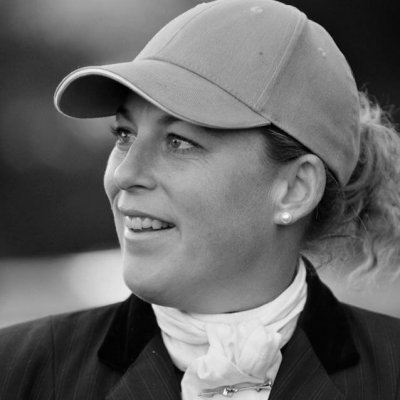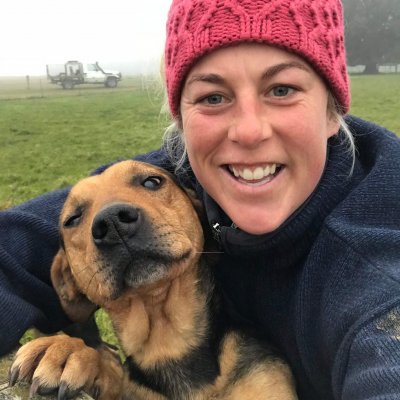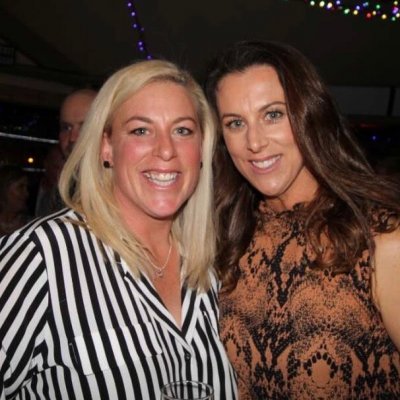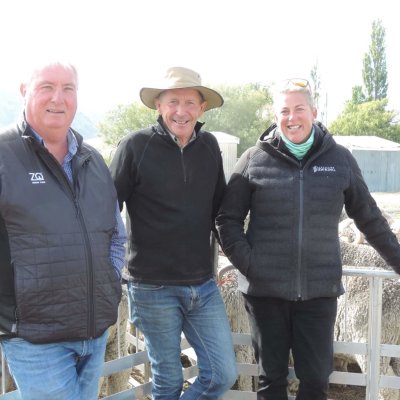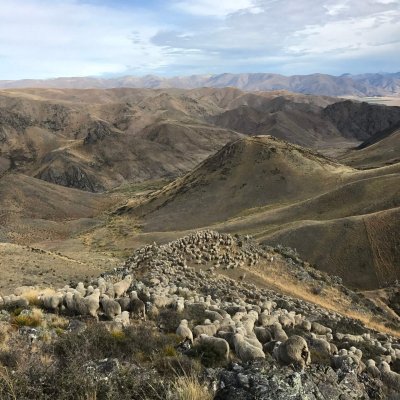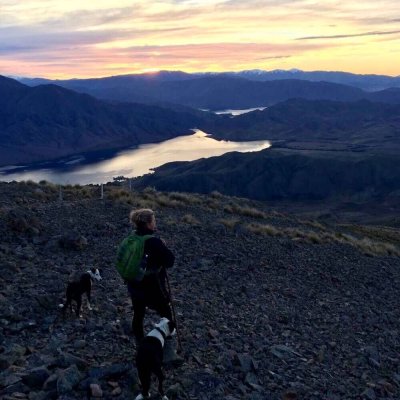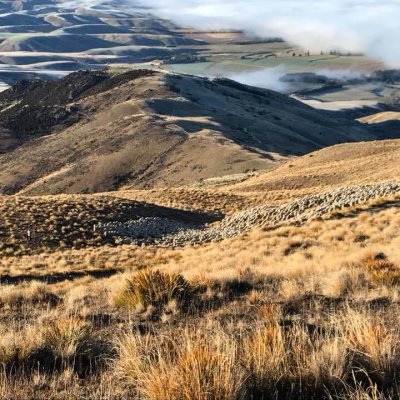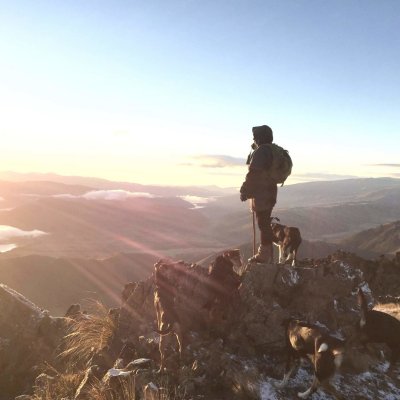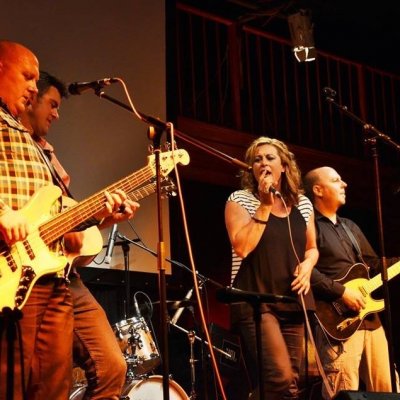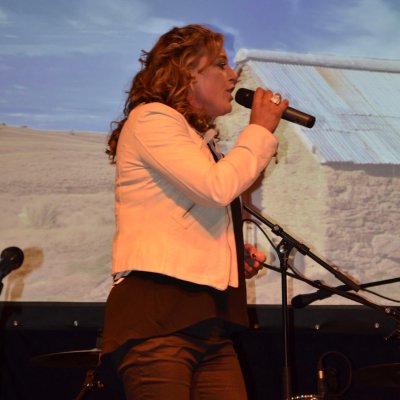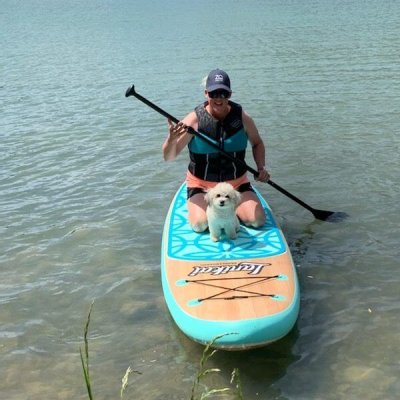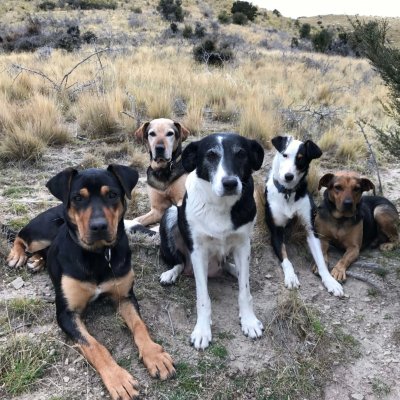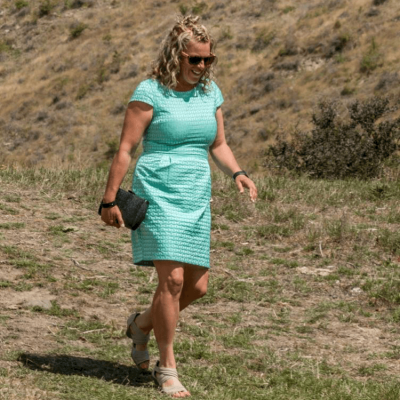A childhood filled with motorbikes, ponies and back-paddock adventures, Nic Blanchard has fond memories of her days growing up in Halkett, Canterbury with her siblings and her mother. Every school holiday was spent in the hills with her aunt, instilling a love of the land that Nic was unable to shake as she later worked her way through the wool, hospitality, administration, flooring and even banking industries. Eventually, her hankering for the hills won her over, with Nic then spending the next ten years working through Central Otago, breeding her own team of working dogs and finally settling in the industry her heart had always yearned for. When an opportunity arose with the New Zealand Merino Company, Nic made the tough decision to sell her dogs and become an Area Manager, and is now based in Omarama amongst the hills she once used to roam.
When asked what concerned Nic about the health and safety of those in rural industries and communities, she painted a picture of how complacency, fatigue and a ‘she’ll be right’ attitude play a huge part in on-farm incidents. Detailing her own experiences of slipping while working close to bluffs, she knows that despite taking the upmost care to minimise the risks by using good boots and carrying a hill pole – things can still go wrong. Nic also reinforced the importance of taking responsibility for one’s own safety, in making sure that others feel comfortable to speak up if they’re not experienced or confident in doing a task, in not taking risks for granted and in how proper training and safe attitudes can save lives.
How would you describe yourself in three words?
Outgoing, loyal and caring.
Tell me something interesting about yourself...
I grew up on 20 acres with my two younger siblings in a little place called Halkett in Canterbury. Our father passed away when we were all very young, so our mother was tasked with raising three extremely energetic children on her own. We had the most fantastic childhood filled with motorbikes, ponies and back-paddock adventures. Every school holidays I headed for the hills to spend time with my Aunt where my love of farming grew.
After leaving school with no qualifications, I was forced into taking a full-time job on our neighbour’s market garden farm. As much as I loathed this work, I learnt some very valuable things about myself and what I was capable of.
Thereafter, Lincoln University seemed like a logical step where I then completed a Certificate in Wool. This led me to my first stop on the road in the wool industry. As much as I loved this, I still yearned to be in the hills mustering with a team of dogs. So the cycle began from the hills, to the sheds and back again. There were a few different stops along the way like working in hospitality, administration, the flooring industry and the banking institution. As varied as these different roles were, they each taught me valuable skills and introduced me to some great mentors – yet my heart kept pulling me back to my roots in farming, and the desperate need I had to be in the hills led me back to the agricultural industry.
For 10 years I worked on different properties throughout Central Otago, where I bred my own team of dogs – something I was immensely proud of. I could never imagine doing anything else. I had finally settled in the industry that I absolutely love! Eventually an opportunity came along that would lead me to the hardest decision I have ever had to make – to sell my dogs. I knew that as much as I loved farming, horses and my dogs, that the day would eventually come that it would no longer be an option for me. With much heartache, I decided the opportunity was too great to pass and the decision lead me to the role of Area Manager for the New Zealand Merino Company. I now live in the brilliant small town of Omarama where I am amongst the hills that I once used to roam.
What's one achievement you are most proud of?
An achievement I’m most proud of is not having listened to those who told me I couldn’t do what I’ve done.
What makes you truly happy?
I’m most happy when I’m around my friends, family and my animals.
What do you love the most about being a rural woman?
I love being a rural woman due to the fact that there are so many different opportunities available out there, and generally speaking, rural women aren’t afraid to give something new a really good shot.
Tell me about a time when you felt worried about your own or someone else’s health, safety or wellbeing on the farm, boat or in some other aspect of rural life.
There have been many occasions I’ve been worried for my own or someone else’s health, safety and wellbeing on the farm. One that comes to the forefront of my mind (that’s happened more than once) is slipping quite some way down a hill towards a bluff while out mustering. I’ve always worn good boots out on the hills and have my hill pole with me at all times. The best measures can be taken to minimise risks but as we all know, things can still go wrong.
What practical things did or could you, your partner and / or others do to prevent someone from getting hurt?
I think fatigue, complacency and the ‘she’ll be right’ attitude play a huge part in the many accidents we hear about. Complacency is a huge one that scares me the most. We are so conditioned to doing many of the jobs we do, that we start to take the risks involved for granted. Complacency is dangerous and it kills! Training can be given for various tasks but ultimately the individual will become responsible for themselves. Attitude and experience come in to play as does peer pressure. We need to feel that we can say we’re not comfortable or experienced enough to carry out a task if we don’t feel safe.
"I’ve always worn good boots out on the hills and have my hill pole with me at all times."
Nic Blanchard, Omarama, Otago NZ Tweet this
Is there a time, place or scenario when your partner / workers are more willing to make changes to the way work is done?
In my experience it always comes too late. Change happens when something has gone wrong or someone has already been hurt.
If you could give any advice to another rural woman about work health and safety in rural industries, about influencing change in business - or just in general - what would it be?
Keep fighting for what’s right and what you believe in! Change will come if we all band together.
